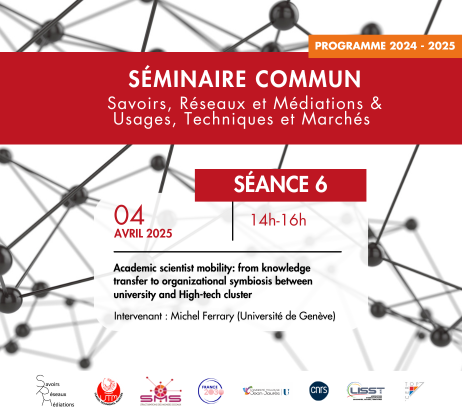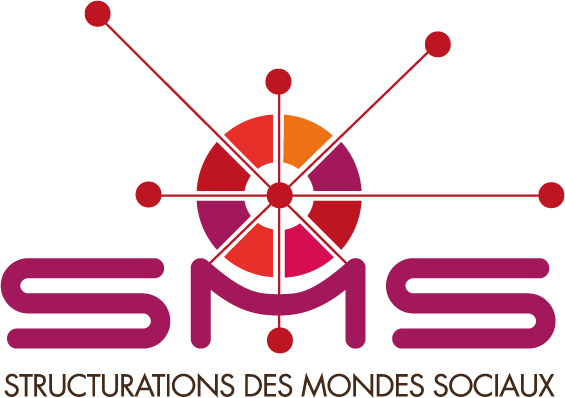- LabEx SMS - Séminaire SRM,
- LabEx SMS - Séminaire UTM,
- Recherche,
-
Partager cette page
Academic scientist mobility: from knowledge transfer to organizational symbiosis between university and High-tech cluster
Publié le 4 décembre 2024 – Mis à jour le 7 juillet 2025
le 4 avril 2025
Pour obtenir le lien zoom, merci de contacter : Guillaume Favre
14h-16h
Université Toulouse - Jean Jaurès, bâtiment Olympe de Gouges, GS135Pour obtenir le lien zoom, merci de contacter : Guillaume Favre

Séance commune des séminaires "Savoirs, Réseaux et Médiations" & "Usages, Techniques et Marchés" du LabEx SMS
Programme
Combining the professional and geographical mobility of academic scientists provides a complementary light on literature exploring university to industry knowledge transfer (UIKT) and contribution of universities to regional industrial clusters. At a regional level, knowledge transfer depends on the alignment between the explorative capabilities of universities and the exploitative capabilities of firms. Academic scientists tend to move from academia into regional industry when their competencies are aligned with those required by local businesses. In the case of mismatch, they move to other regions. Alignment of competencies and needs creates a virtuous circle of symbiotic relationships; academic scientists nurture local industry, resulting in growth and the need for more academic scientists for employment and collaboration, which in turn supports the local university. Academic spin-offs can trigger the virtuous circle and supports an aligning process between universities and firms. Such virtuous circle depends on a more complex relationship between the two kinds of organizations than a simple linear process of knowledge transfer from university to industry. Academic spin-offs can initiate a symbiotic knowledge relationship between the two kinds of organizations.To explore this perspective in an inductive approach, I analyse the professional and geographical mobility of Stanford PhD graduates in computer science from 1966 to 2016, with a focus on the beginning of the internet industry in 1994/1995. PhDs graduates in computer science possess valuable knowledge that contributes to the Internet industry. Analysing their mobility helps to understand the contribution of Stanford to the rise of the internet industrial cluster in Silicon Valley.
Intervenant :
- Michel Ferrary, Université de Genève








